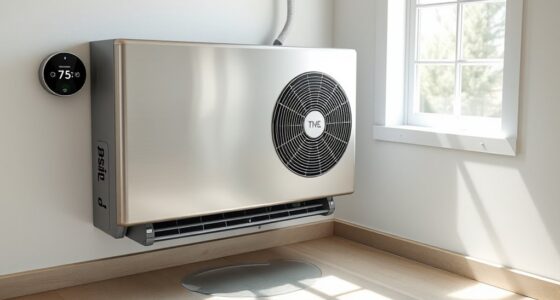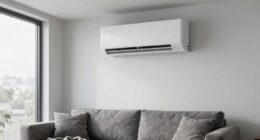Are you prepared to transform the HVAC system in your commercial building?
Look no further than our comprehensive checklist for heat pump technology. We’ve done the research and compiled all the information you need to understand, evaluate, and implement the most energy-efficient and cost-effective heat pump systems.
From geothermal potential to maintenance requirements, we’ve got you covered.
Get ready to take your commercial building to the next level of comfort and sustainability.
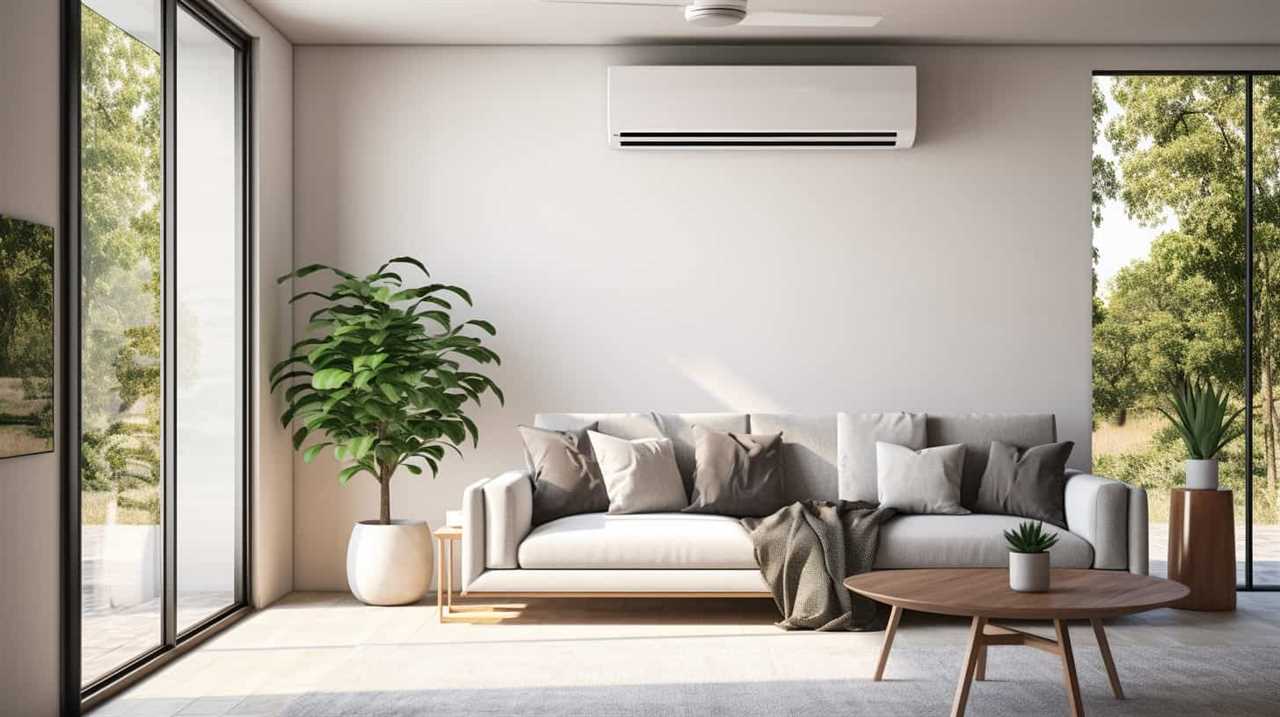
Let’s dive in!
Key Takeaways
- Consider cost and efficiency, size and capacity, and maintenance and durability when selecting heat pump technology for commercial buildings.
- Energy efficiency ratings like SEER and HSPF are important factors to consider in heat pump technology selection.
- Regular maintenance is essential for efficient heat pump operation, including scheduling maintenance checks, cleaning filters, inspecting electrical connections, and lubricating moving parts.
- Properly sizing and determining heat pump capacity based on building size, insulation, climate, occupancy, ventilation, and desired temperature is crucial for optimal performance.
Evaluating the Energy Efficiency of Heat Pump Systems
We’ll assess the energy efficiency of heat pump systems by considering factors such as the COP, SEER, and HSPF ratings. These ratings are crucial in determining the performance and efficiency of a heat pump system.
The Coefficient of Performance (COP) measures the ratio of heat output to the amount of electrical energy input. A higher COP indicates greater efficiency.
The Seasonal Energy Efficiency Ratio (SEER) is a measure of cooling efficiency, while the Heating Seasonal Performance Factor (HSPF) measures heating efficiency. Both SEER and HSPF ratings should be as high as possible for optimal energy efficiency.

Additionally, it’s important to consider the size and insulation of the space being heated or cooled, as well as regular maintenance to ensure the system operates at peak efficiency.
Understanding the Different Types of Heat Pumps for Commercial Buildings
We frequently encounter different types of heat pumps for commercial buildings, and it’s important to understand their distinctions.
Heat pumps are classified into three main types: air source, water source, and ground source.
Air source heat pumps extract heat from the outside air and transfer it indoors, while water source heat pumps use a water source such as a lake or pond to absorb or release heat.
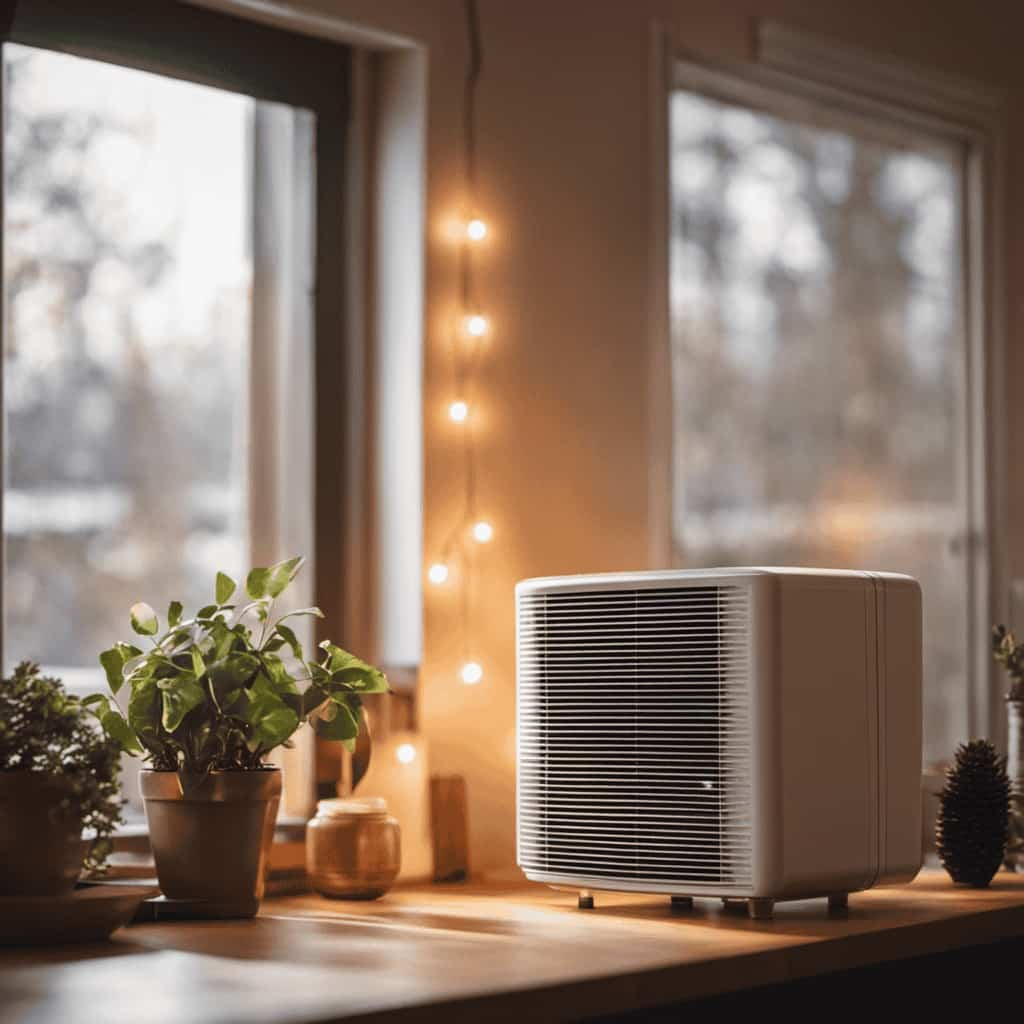
Ground source heat pumps, also known as geothermal heat pumps, utilize the relatively constant temperature of the ground to provide heating and cooling.
Each type has its advantages and considerations, such as installation cost, efficiency, and suitability for specific climates.
Sizing and Load Calculations for Heat Pump Systems in Commercial Buildings
To accurately size and calculate the load requirements for heat pump systems in commercial buildings, we must consider factors such as building size, insulation, occupancy, and climate conditions. These calculations are crucial in ensuring that the heat pump system is capable of effectively heating or cooling the space while minimizing energy consumption and maximizing comfort.
Here are the key considerations for sizing and load calculations:

Building size: The total square footage of the building determines the overall heating and cooling needs.
Insulation: The insulation levels of walls, roofs, and windows impact the heat transfer and therefore the load requirements.
Occupancy: The number of people occupying the building affects the heat gain and heat loss.
Selecting the Right Heat Pump Technology for Your Commercial Building
When selecting the right heat pump technology for our commercial building, we need to consider three key points: cost and efficiency, size and capacity, and maintenance and durability.

These factors are crucial in determining the overall performance and effectiveness of the heat pump system.
Cost and Efficiency
Choosing the most cost-effective and efficient heat pump technology for our commercial building is crucial. We want to ensure that we’re making a wise investment that will provide us with long-term savings and optimal performance.
When considering the cost and efficiency of heat pump technology, here are a few key factors to keep in mind:
Energy Efficiency: Look for heat pumps with high energy efficiency ratings, such as a high Seasonal Energy Efficiency Ratio (SEER) and Heating Seasonal Performance Factor (HSPF).

Lifecycle Costs: Consider not only the upfront cost of the heat pump but also the long-term costs of maintenance, repairs, and energy consumption.
Rebates and Incentives: Check for available rebates or incentives that can help offset the initial investment and reduce overall costs.
Size and Capacity
We need to determine the appropriate size and capacity of the heat pump technology for our commercial building to ensure optimal performance. Selecting the right size and capacity is crucial for the heat pump to effectively heat or cool our building. To help us make an informed decision, let’s consider the following factors:
| Size | Capacity |
|---|---|
| Building size | Heating/cooling load |
| Insulation | Climate |
| Occupancy | Desired temperature |
| Ventilation | Efficiency |
| Building layout |
Considering these factors will ensure that we choose a heat pump technology that can meet our building’s specific needs. Properly sizing and determining the capacity will prevent any inefficiencies or underperformance, saving us money in the long run.
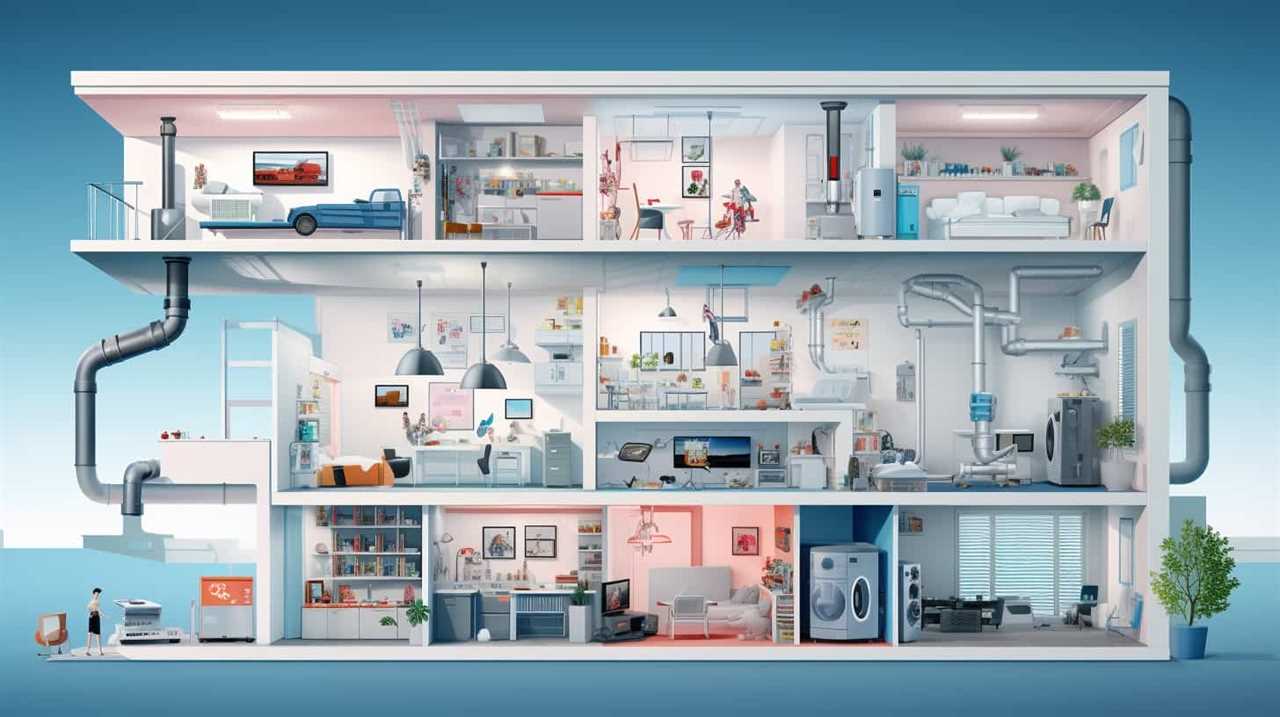
Now that we’ve understood the importance of size and capacity, let’s move on to discussing maintenance and durability of heat pump technology in our commercial building.
Maintenance and Durability
Now that we’ve understood the importance of maintaining and ensuring durability in our heat pump technology, it’s time to explore the various options available for our commercial building.
Here are some key factors to consider when it comes to maintenance and durability:
Regular maintenance: It’s essential to schedule regular maintenance checks to keep the heat pump running efficiently. This includes cleaning filters, inspecting electrical connections, and lubricating moving parts.
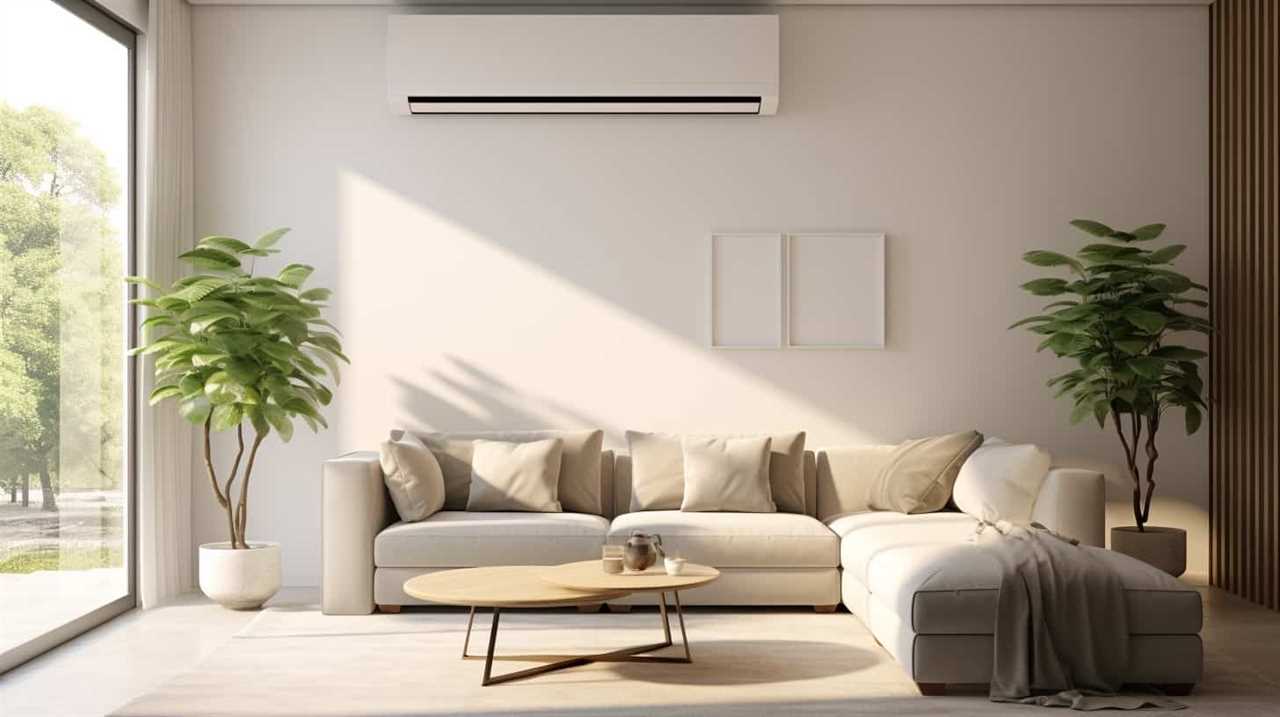
Quality materials: Investing in high-quality heat pump systems made with durable materials can significantly extend their lifespan. Look for units that are built to withstand harsh weather conditions and frequent use.
Warranty coverage: Choosing a heat pump with a comprehensive warranty can provide peace of mind and protect your investment. Ensure that the warranty covers both parts and labor for a specified period.
Assessing the Geothermal Potential for Heat Pump Installation in Commercial Buildings
Assessing the geothermal potential is crucial for determining the feasibility of heat pump installation in commercial buildings. By evaluating the subsurface temperature and geology, we can determine if a building is suitable for a geothermal heat pump system.
Conducting a site survey and analyzing geological data allows us to identify the optimal locations for ground loops or wells. This assessment ensures that the geothermal system can efficiently extract heat from the ground and provide heating and cooling for the building.

Additionally, considering local regulations and permits is essential during this process.
Considering the Environmental Impact of Geothermal Heat Pump Technology
When considering the environmental impact of geothermal heat pump technology, there are several points to take into account.
Firstly, geothermal heat pumps offer significant environmental benefits by reducing greenhouse gas emissions and reliance on fossil fuels.
Additionally, they’re cost-effective in the long run, as they can lower energy consumption and decrease utility bills.
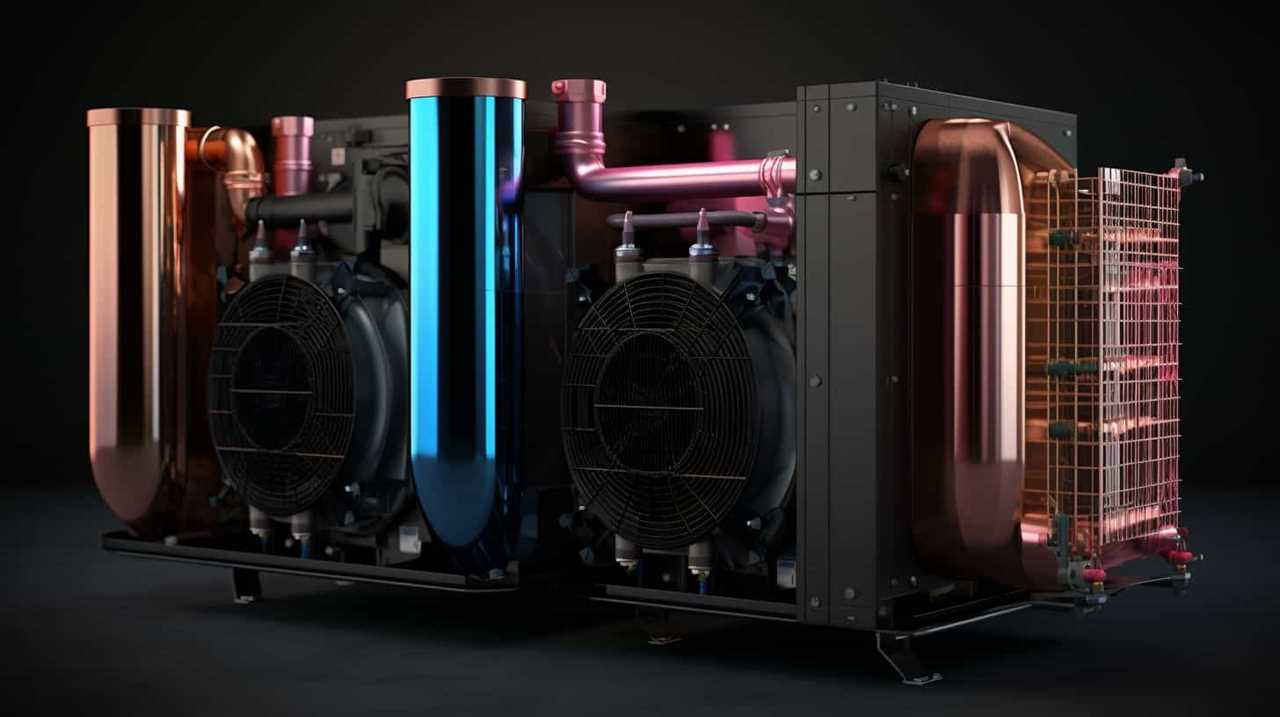
Environmental Benefits of Geothermal
We believe that the adoption of geothermal heat pump technology offers significant environmental benefits, particularly in terms of reducing greenhouse gas emissions and improving air quality.
Geothermal heat pumps use the constant temperature of the earth to heat and cool buildings, resulting in lower energy consumption and reduced carbon emissions. Here are three key environmental benefits of geothermal heat pump technology:
Energy Efficiency: Geothermal heat pumps are highly efficient, using up to 50% less electricity compared to conventional HVAC systems, resulting in lower energy consumption and reduced reliance on fossil fuels.
Carbon Footprint Reduction: By using renewable energy from the earth’s natural heat, geothermal heat pumps significantly reduce greenhouse gas emissions, contributing to the fight against climate change.
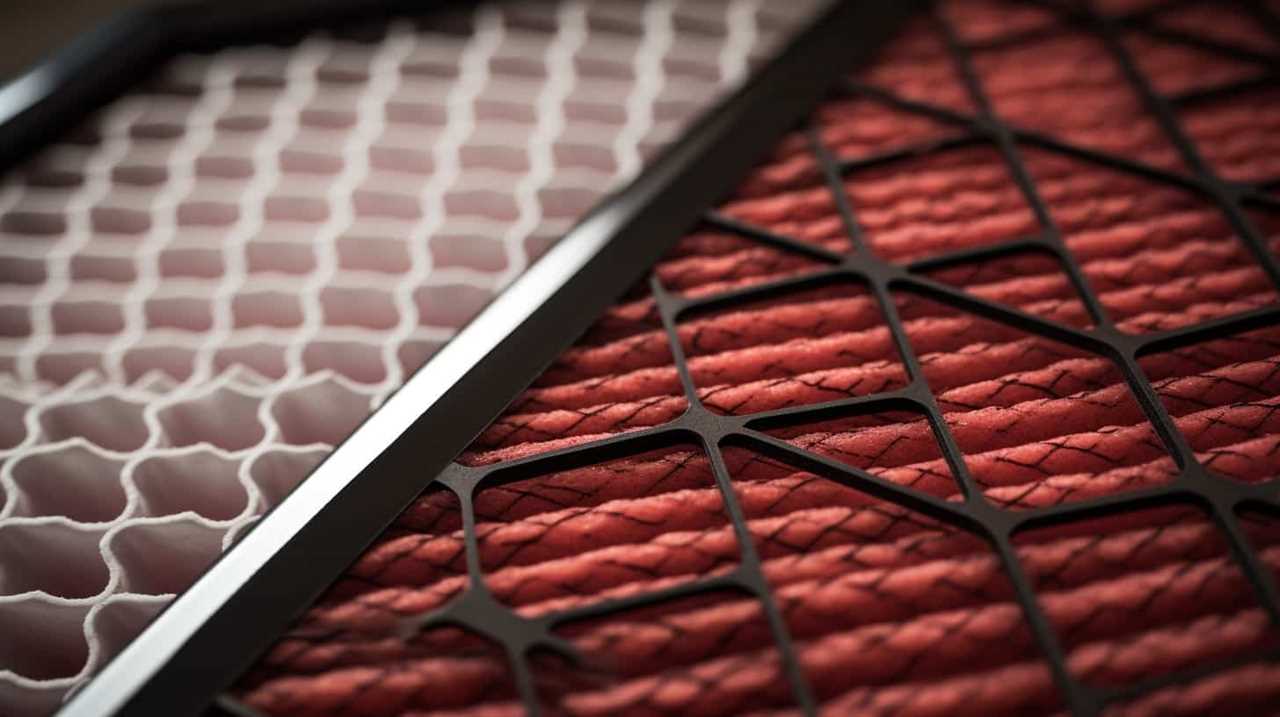
Improved Air Quality: Geothermal heat pumps don’t burn fossil fuels and have no outdoor units, reducing the release of pollutants into the air and improving indoor air quality.
Considering these environmental benefits, it’s clear that geothermal heat pump technology is a sustainable option for commercial buildings.
In the next section, we’ll discuss the cost-effectiveness of heat pumps.
Cost-Effectiveness of Heat Pumps
Geothermal heat pump technology offers a cost-effective solution for commercial buildings, while also considering the environmental impact. By harnessing the natural heat from the Earth, geothermal heat pumps provide efficient heating and cooling, resulting in significant energy savings.
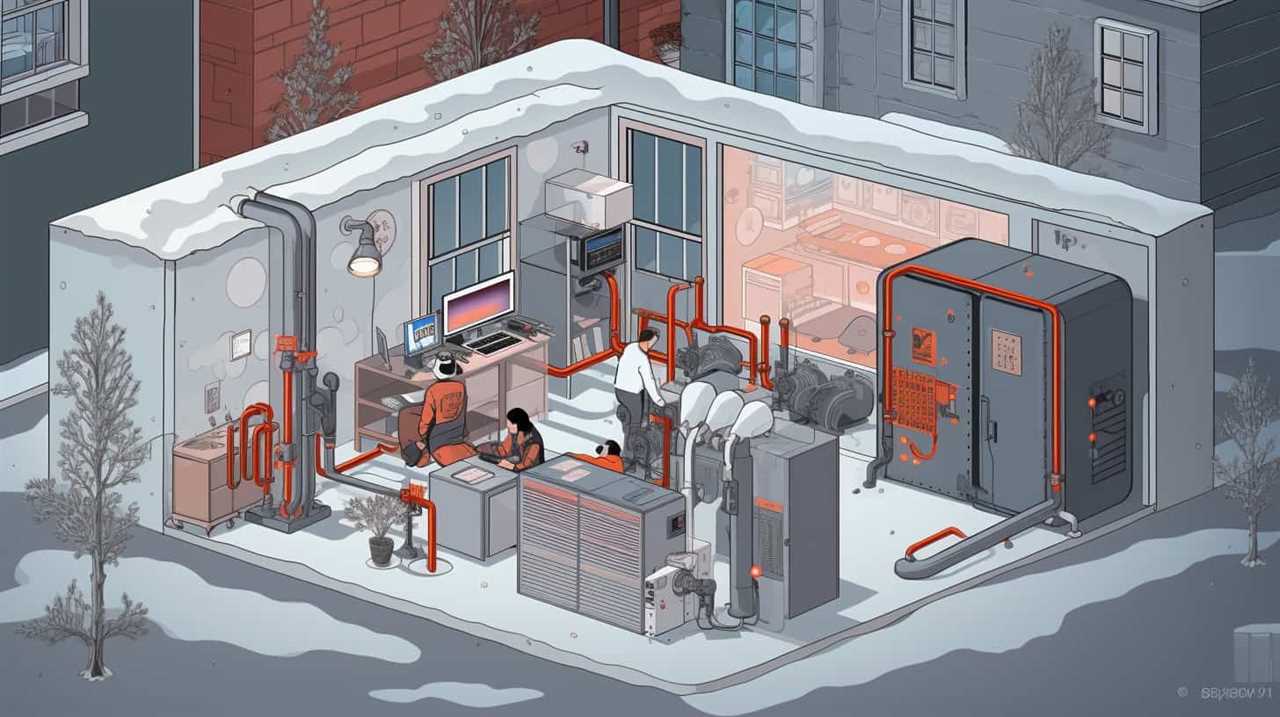
These systems use the constant temperature of the ground to transfer heat, reducing the need for fossil fuels and lowering greenhouse gas emissions. This not only helps businesses save on energy costs but also contributes to a cleaner and healthier environment.
Moreover, geothermal heat pump systems require minimal maintenance, leading to further cost savings in the long run. With their impressive efficiency and eco-friendly features, geothermal heat pumps are a reliable and economical choice for commercial buildings, allowing businesses to prioritize both their bottom line and sustainability goals.
Evaluating the Cost-effectiveness of Heat Pump Systems in Commercial Buildings
To determine the cost-effectiveness of heat pump systems in commercial buildings, we must assess the financial benefits and expenses associated with their installation and operation. This evaluation is crucial to make an informed decision about whether investing in heat pump technology is the right choice for your business.
Here are some key factors to consider:
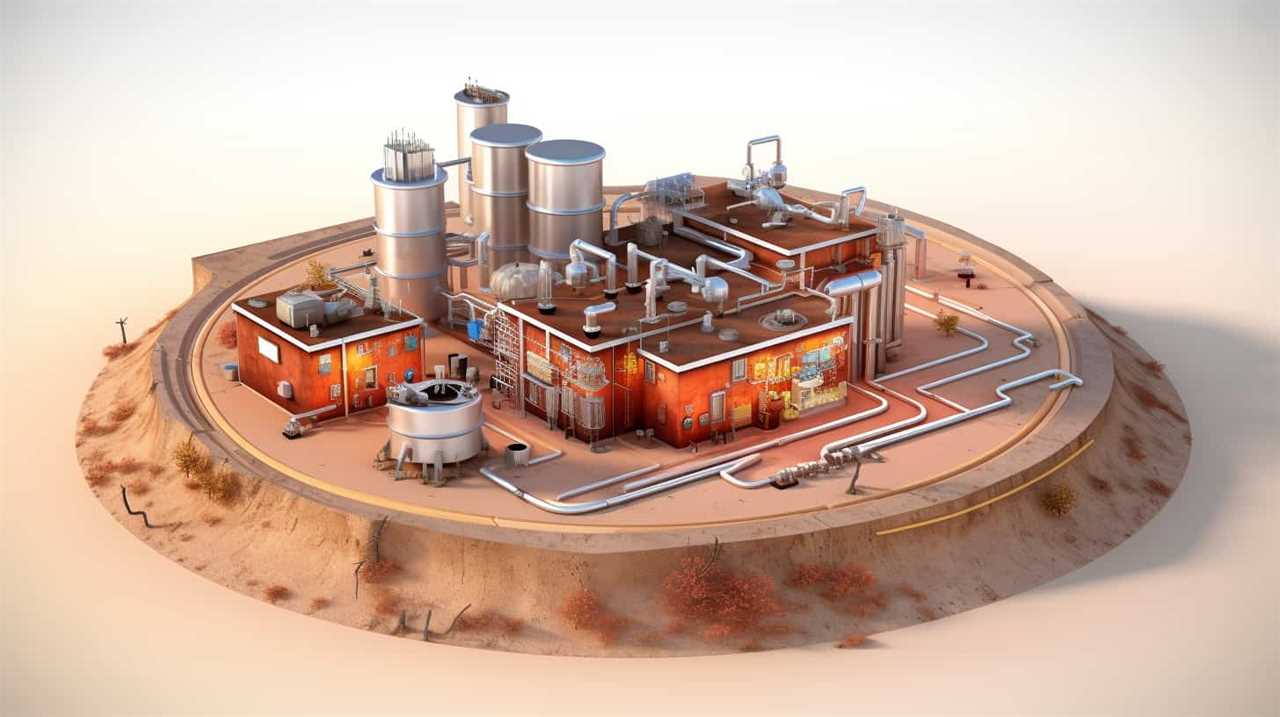
Energy savings: Heat pump systems are known for their energy efficiency, which can lead to significant cost savings on utility bills.
Maintenance costs: While heat pumps generally require less maintenance compared to other HVAC systems, it’s important to factor in any potential repair or replacement costs over the system’s lifespan.
Incentives and rebates: Many governments and utility companies offer financial incentives for installing heat pump systems, which can help offset the initial investment.
Understanding the Maintenance and Service Requirements of Heat Pump Systems
Now let’s talk about the maintenance and service requirements of heat pump systems.
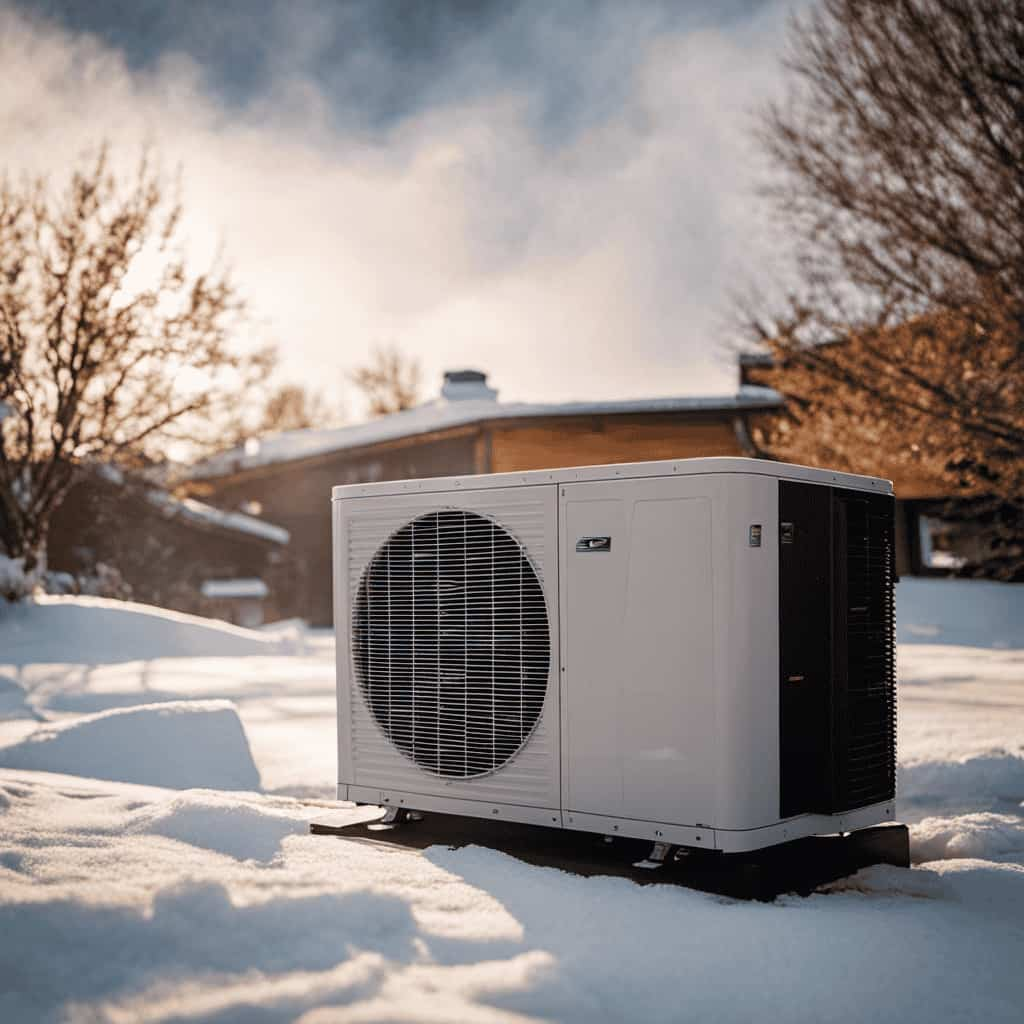
Regular maintenance schedules are essential to ensure optimal performance and longevity. It’s important to follow professional servicing recommendations to address any potential issues and keep the system running smoothly.
Regular Maintenance Schedules
Maintaining a heat pump system requires regular service and maintenance to ensure optimal performance and longevity. To keep your heat pump running smoothly, here are a few key maintenance tasks to include in your regular schedule:
Clean or replace air filters: Dirty filters can hinder airflow and reduce efficiency. Regularly cleaning or replacing them can improve system performance.
Check and clean coils: Over time, the coils in your heat pump can accumulate dirt and debris, which can affect heat transfer. Regularly checking and cleaning the coils can help maintain efficiency.
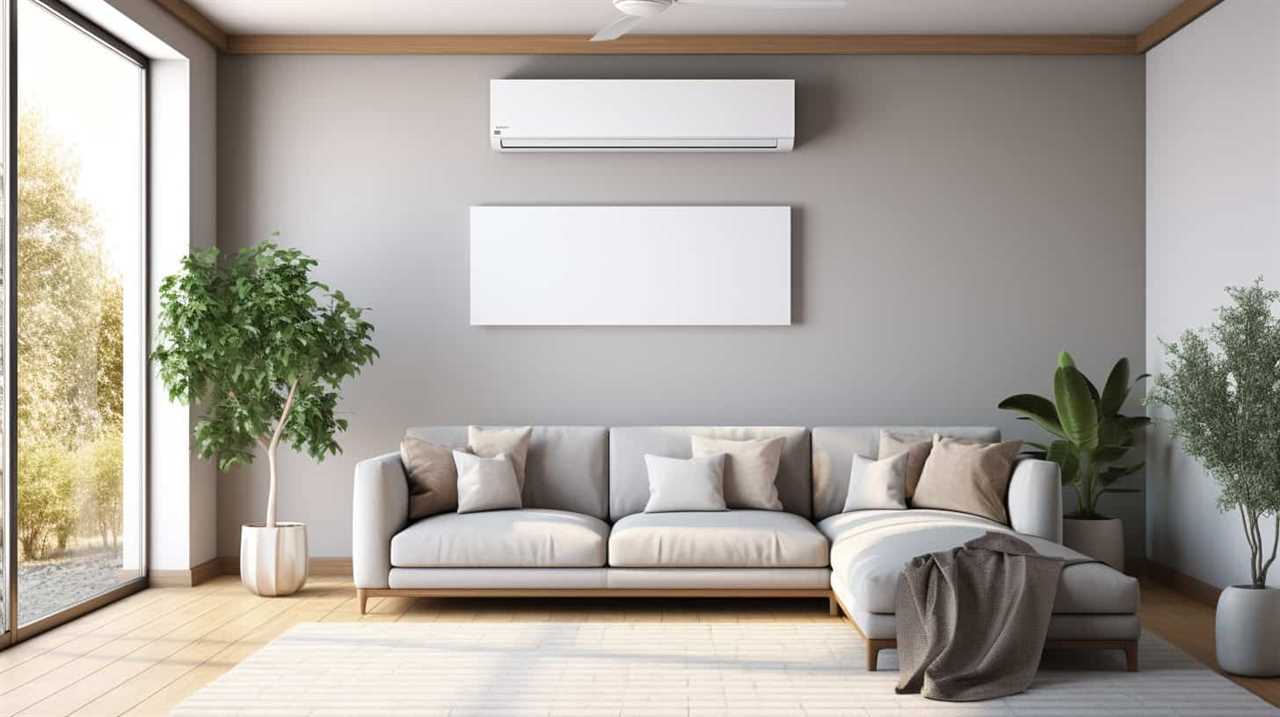
Monitor refrigerant levels: Low refrigerant levels can cause your heat pump to work harder and may lead to system damage. Regularly checking and maintaining proper refrigerant levels is essential.
By following these maintenance tasks, you can ensure that your heat pump operates at its best.
Now let’s move on to the next section about professional servicing recommendations.
Professional Servicing Recommendations
As we delve into the topic of professional servicing recommendations, it is important to understand the maintenance and service requirements of heat pump systems. Heat pumps are complex systems that require regular maintenance to ensure optimal performance and longevity. To help you understand the importance of professional servicing, we have created a table that highlights the key maintenance tasks and their recommended frequency.

| Maintenance Task | Recommended Frequency |
|---|---|
| Filter Replacement | Every 1-3 months |
| Coil Cleaning | Annually |
| Refrigerant Check | Every 2-3 years |
| Electrical Inspection | Every 5 years |
Integrating Heat Pump Technology With Existing HVAC Systems in Commercial Buildings
When integrating heat pump technology with existing HVAC systems in commercial buildings, we need to consider several factors to ensure a seamless and efficient integration process.
Compatibility: It’s essential to assess whether the existing HVAC system can accommodate the heat pump technology without any major modifications. This includes evaluating the capacity, ductwork, and control systems.
Efficiency: We need to determine how the heat pump technology will enhance the overall energy efficiency of the system. This involves analyzing the energy consumption, seasonal performance ratings, and potential savings.
Control and Monitoring: Integrating the heat pump technology shouldn’t compromise the ability to control and monitor the HVAC system. It’s crucial to ensure that the existing controls can effectively manage the additional functionalities introduced by the heat pump technology.

Ensuring Proper Installation and Commissioning of Heat Pump Systems in Commercial Buildings
To ensure the proper installation and commissioning of heat pump systems in commercial buildings, we must follow a checklist of essential steps.
It’s crucial to start by selecting the right location for the heat pump system, considering factors such as available space, access for maintenance, and noise considerations.
Once the location is determined, proper sizing of the system is imperative to ensure optimal performance and energy efficiency.
Next, it’s essential to hire qualified professionals who are experienced in heat pump installation and commissioning. They’ll ensure that all connections, electrical wiring, and refrigerant lines are installed correctly, and that the system is calibrated and tested for optimal performance.
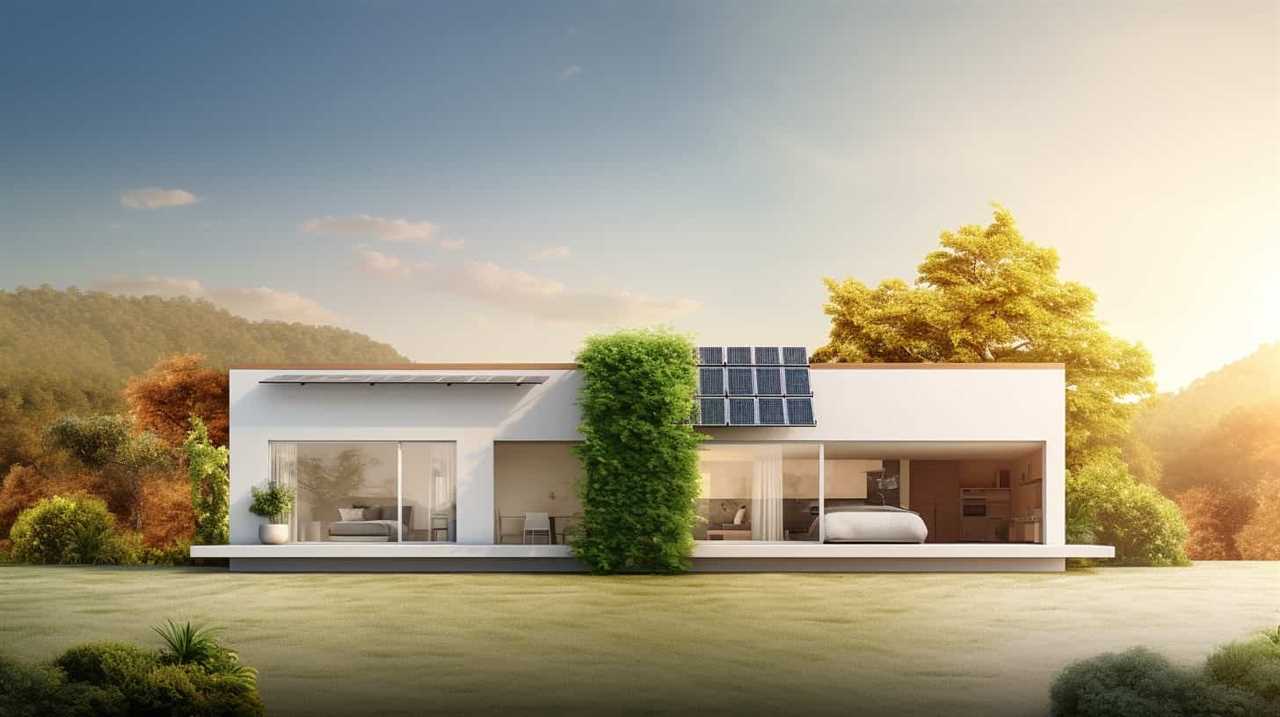
Regular maintenance and monitoring of the system’s performance are also vital to ensure its longevity and efficiency.
Frequently Asked Questions
Are There Any Government Incentives or Rebates Available for Installing Heat Pump Systems in Commercial Buildings?
Yes, there are government incentives and rebates available for installing heat pump systems in commercial buildings. These incentives can help offset the cost of installation and make it more affordable for businesses.
What Is the Average Lifespan of a Heat Pump System for a Commercial Building?
We’ve found that heat pump systems in commercial buildings typically last around 15 to 20 years. Regular maintenance and servicing can help extend their lifespan and ensure optimal performance.
Can a Heat Pump System Be Used for Both Heating and Cooling in a Commercial Building?
Yes, a heat pump system can be used for both heating and cooling in a commercial building. It’s an efficient and versatile technology that allows us to maintain comfortable temperatures year-round.
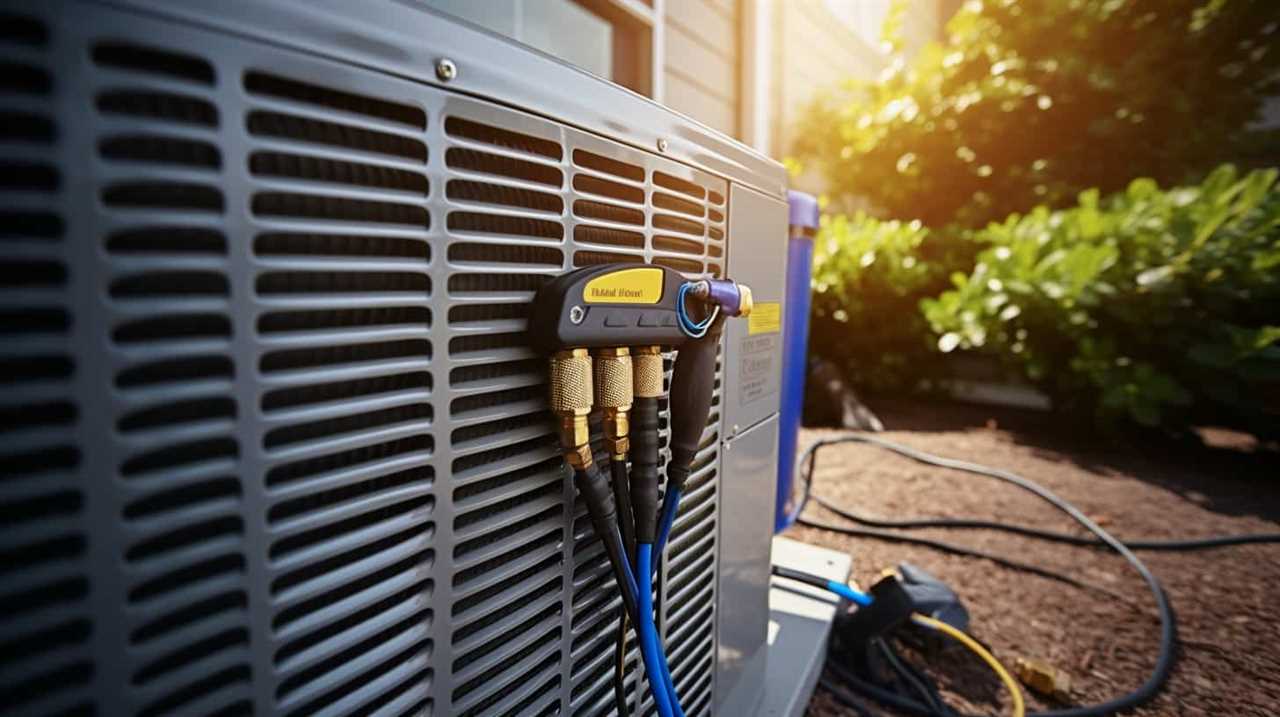
How Noisy Are Heat Pump Systems in Commercial Buildings and Is There a Way to Reduce the Noise Level?
Heat pump systems in commercial buildings can be noisy, but there are ways to reduce the noise level. By using sound-dampening materials and proper installation techniques, we can create a quieter and more comfortable environment.
Are There Any Specific Safety Considerations or Regulations That Need to Be Followed When Installing Heat Pump Systems in Commercial Buildings?
There are specific safety considerations and regulations that need to be followed when installing heat pump systems in commercial buildings. It’s important to ensure compliance to keep occupants and the building safe.
What Are the Essential Steps to Harness Earth’s Warmth for Commercial Buildings?
Harnessing earth’s warmth for structures is an essential step in achieving energy efficiency in commercial buildings. The process involves using geothermal heat pumps to tap into the Earth’s natural heat and distribute it for space heating or cooling. By leveraging this renewable resource, businesses can reduce their reliance on fossil fuels and significantly lower their carbon footprint. Implementing proper insulation, conducting thorough site evaluations, and investing in reliable geothermal systems are crucial steps towards maximizing the benefits of harnessing earth’s warmth for commercial buildings.
Conclusion
After thoroughly evaluating the energy efficiency, types, sizing, and potential of heat pump systems, as well as considering the cost-effectiveness, maintenance requirements, integration, and proper installation of these systems, it’s clear that heat pump technology holds great promise for commercial buildings.
By harnessing geothermal potential and integrating with existing HVAC systems, heat pumps can provide efficient and reliable heating and cooling solutions.

With further research and implementation, this theory has the potential to revolutionize commercial building heating and cooling practices.




